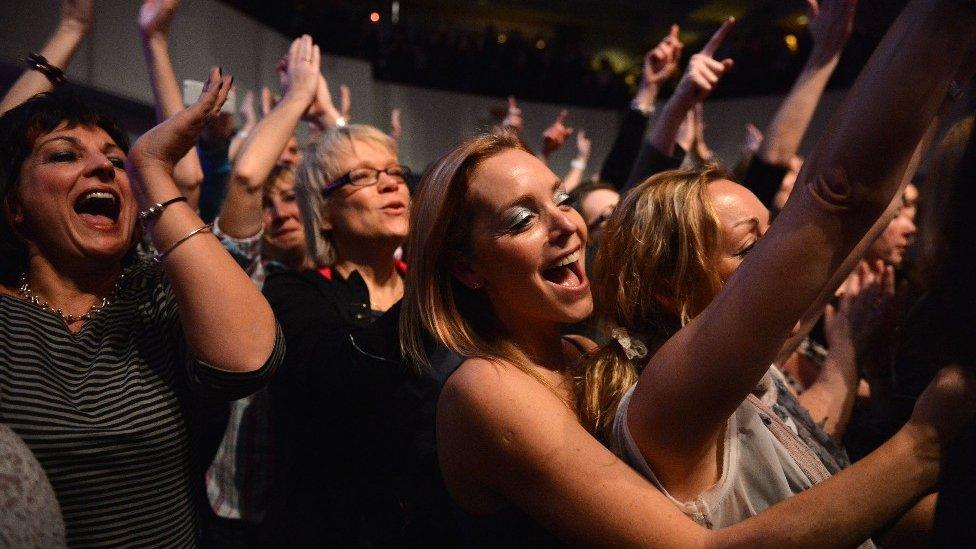Cost of living crisis increases fears for small gig venues
- Published
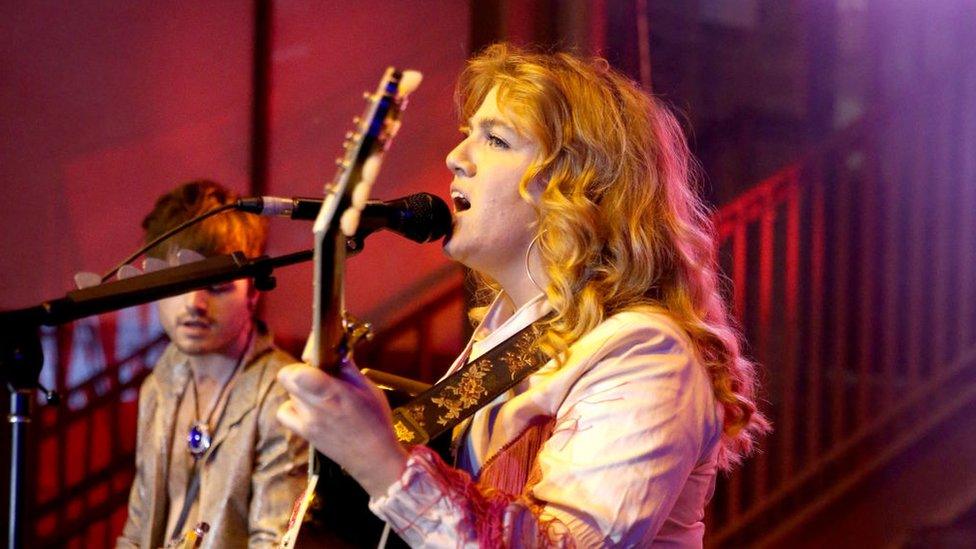
"Can I do my songs now?" - CMAT, aka Ciara Thompson, says open mic nights gave her a big break
When you think of small music venues Adele and Ed Sheeran might not be the first names that spring to mind.
But both are just two of the UK's biggest artists who started their careers in grassroots venues.
Those small bars, pubs and clubs - a crucial springboard for new acts - are struggling, with a charity now predicting one could be lost each week.
The Music Venue Trust says 2023 will be the worst year for closures since it formed in 2014.
Singer-songwriter CMAT is also worried about the future of grassroots music.
Open mic platform
Speaking to BBC Newsbeat backstage at London's Royal Albert Hall, she's about to support Grammy-winning duo Wet Leg at their Teenage Cancer Trust gig.
CMAT, real name Ciara Thompson, recently won Ireland's Choice Music Prize for Best Album of the Year, and she's under no illusions about how she's got to where she is.
"I literally wouldn't have a career if it wasn't for open mic nights in small venues," she says.
"That was literally the first five years of my career - turning up on a Tuesday night with my guitar and asking 'can I do my songs now?'" she says.
But, since the pandemic, and the cost-of-living crisis that's followed, more and more small venues are disappearing.
According to the Music Venue Trust, 22 grassroots venues have closed for good since April 2022.
The charity expects more will go - possibly one a week - once government energy bill support for small businesses is cut back from 1 April.
CMAT fears losing too many pubs and clubs will lead to music being dominated by those who've made a name through TikTok or privileged artists who "start off on an elevated platform".

Berwyn has been nominated for the Mercury prize and was third in the BBC Sound Of 2021 list
It's something singer and rapper Berwyn can relate to.
"Smaller venues were incredibly important to my career," he tells Newsbeat.
The 26-year-old is now signed to a major label and playing shows across the UK, but says performing at local venues was "training" for bigger things.
"The industry works in a larger format, you climb up from level to level and before you know it you're at Madison Square, you're at Wembley, but that level system is important."
"Things have to develop naturally, you can't put a seed in the ground and expect it to go up and then then go down and and come back up again."
Berwyn says it's important for "everyday people" with big ambitions to "have the opportunity to to play small venues and increase and grow".
"Where would Ed Sheeran be without small venues? Where would Adele be without small venues? These are some of the most important artists in the culture of our times."
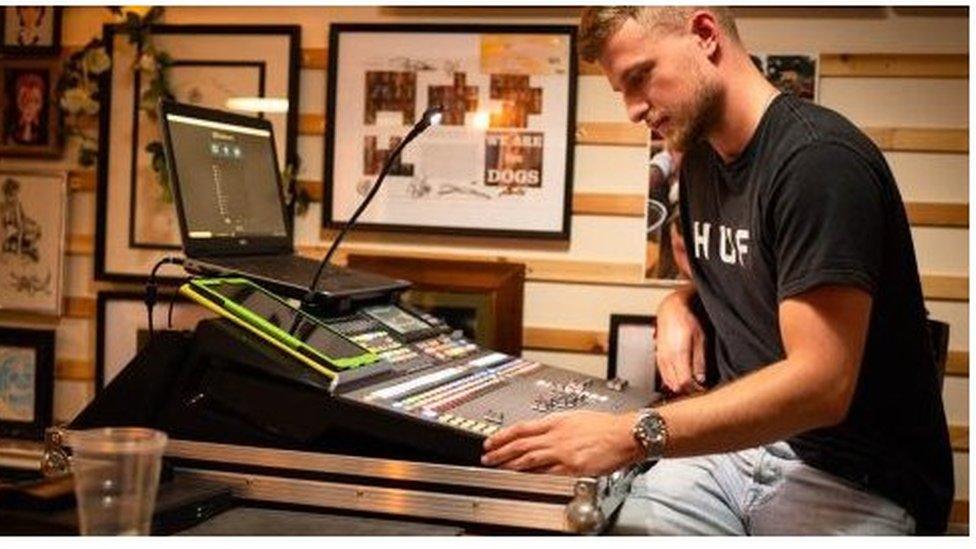
Ben Morgan runs events at The Snug in Bolton, Lancashire
Ben Morgan is the events manager at the Snug in Atherton, near Bolton, Greater Manchester.
Like other small venues, it relies on ticket and bar sales to make a profit, but "footfall is down because people have less money to come out," says Ben.
The cost-of-living crisis has also hit bar sales.
"So not only do we have fewer people in the venue, but the people who do come are unable to spend as much money as they did before," says Ben.
That's having an effect on line-ups - Ben would like to put lesser-known bands on the bill, but rising costs mean he's stuck to more recognised names guaranteed to bring in customers.
And it's this, Ben argues, that's damaging the music industry.
"Without us there is no stepping stone for them," he says.
"You will see fewer and fewer acts being able to make it to the big stage.
"They won't have that practice, they won't have those skills from performing at grassroots music venues like ours to take on further in their career".
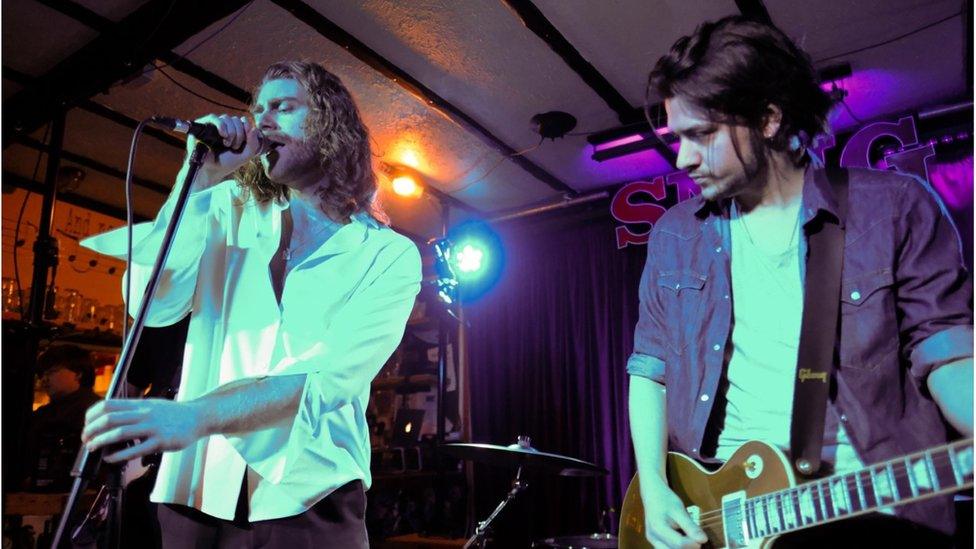
Gathering of Strangers are among many bands who've played at The Snug
Music Venue Trust CEO Mark Davyd agrees that the "entire music industry" should be "very worried about the future".
Most have a "really, really tough relationship with landlords," Mark tells Newsbeat, and one of the biggest issues is that most venues don't own the buildings they're based in.
It's why the trust launched a new scheme last year - allowing fans to buy shares in venues to enable the charity to purchase them.
The Snug was among nine venues selected for the pilot project when its former owners put it up for sale.
If the fundraising project is successful it will be able to pay a reduced rent to the trust,
Ben says this will help to "secure the long-term future of The Snug" and the other eight sites.
Trust CEO Mark says energy bills are "completely absurd" at present still a big problem for venues. He wants the government to do more to help.
Creative Industries Minister Julia Lopez is due to meet the trust to discuss issues facing the live music sector.
A spokesperson for the Department of Culture, Media and Sport told Newsbeat it was doing all it could to support grassroots venues - "the lifeblood of our world-leading music sector".
They said £1.57bn had been given out in the pandemic through the Culture Recovery Fund, and further help was being provided through the Supporting Grassroots Live Music fund via Arts Council England.


Follow Newsbeat on Twitter, external and YouTube, external.
Listen to Newsbeat live at 12:45 and 17:45 weekdays - or listen back here.
- Published23 May 2022
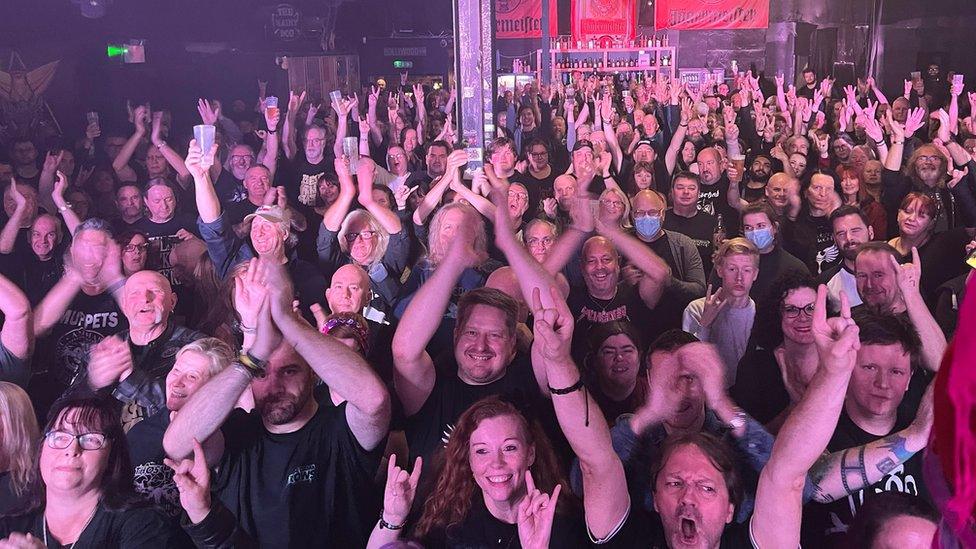
- Published16 November 2022

- Published9 February 2023
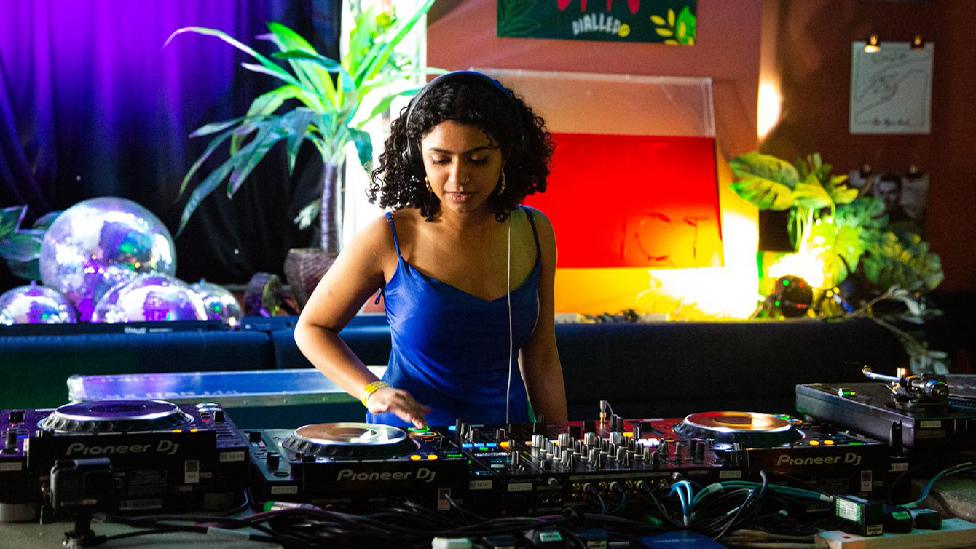
- Published31 January 2023
